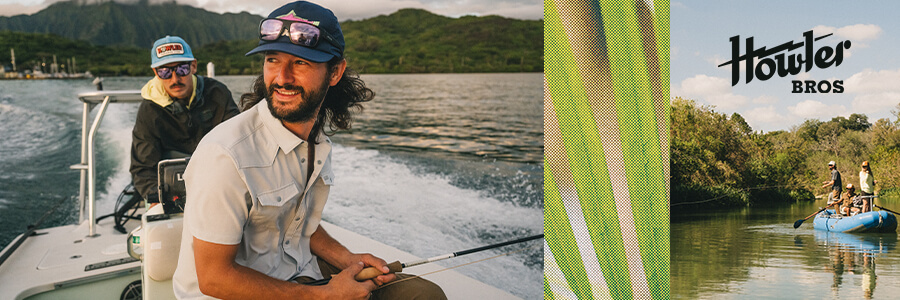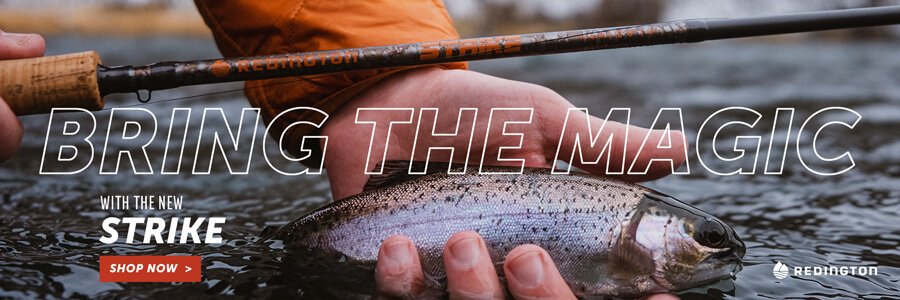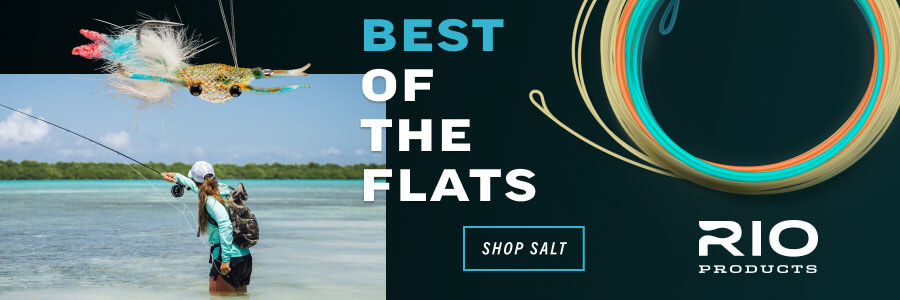A People Unto Themselves: Coming Of Age With Musky In The Dirty South
We tend to be fascinated with the recurring theme of social development in a vacuum. Nature versus nurture. What happens to those who grow up without the normal frame of reference that society provides us? The notion has spawned its share of weird tales from the Wolf Boy of Mumbai to Jessica Simpson’s career as a country artist. However one of the weirdest tales yet may be the development of the Southern Musky fishing culture on the Collins and Caney Fork Rivers.We were not raised in an ESOX culture. Musky did not haunt my childhood dreams; they existed only as a Northwoods bit actor in those classic Field and Stream articles that seemed to be no more real to me than a Currier and Ives print, surely true but hidden the mist of someone else’s reality. While the musky is a native fish to Tennessee, the population had dwindled down to ghost status long before my grandfather’s time. And had you shown a 1960s-era Collins River angler any of the popular musky plugs of the day, he would have immediately identified them as Tarpon lures and launched into a story about the time he lost a 100-pounder off Apalachicola. The mere mention of probing the clear mountain rivers for giant fish with such gear would have ensured your children a permanent spot at the shunned table in the school cafeteria. The public expression of casting giant flies to mythical river beast was such pure fantasy that it would have surely resulted in a judge’s committing you to the mental health ward at the county home forthe protection of you and those around you. Yet tucked away in a dusty drawer in my grandmother’s house was a faded black-andwhite photograph of my grandfather with a Caney Fork musky that had intercepted a smallmouth offering and was fatefully hooked in just the right way to allow its capture. The photo was handled with the same reverence as a religious relic, an ancient icon. We stared at it as if a hidden zipper would become evident and the farce explained, returning us to the comfort of all those things that we knew to be true and unyielding by its dismissal.And so we grew up chasing smallmouth, shell cracker and largemouth. The path was clear – we would either become river rats, trout people or answer the call of the salt. The simple-minded would take up tournament bass fishing, the whole lot of us blissfully unaware that somewhere on the banks of a mountain river, a group of dedicated biologists were quietly working to awaken the ghost. The die was irrevocably cast and the clock began a decades-long countdown to an event that would tear at the very fabric of our psyche and challenge all that we knew. We each remember the first time we saw them. The circumstances only vary slightly but we immediately knew that we must possess them in some manner, at the very least touch them. We must prove to others that they are real and not a symptom of our own slide into madness. Our very vocabulary and actions began to change and evolve. Long discussions concerning 8/0 vs. 4/0 hooks ensued. Muted pre-dawn conversations in the cafe centered around “bulky but natural”, “what the fuck could they be eating up there” and “tweaker floats” (i.e., a float through areas prone to meth labs which require high capacity magazines, short rods and a really fat forward taper). Damned Yankee carpetbaggers became trusted friends and obscene amounts of money were paid for the use of any remote riverbank where a boat could be skidded into a prime piece of water.
Twenty years on, and a fly rod musky catch is so common that it has to break 44 inches to gather any more praise than a passing smile and a friendly “nice” from your friends. Shallow water skiffs share the parking lots with deep V trolling boats and dusty mounts hang from the walls of the café as if they were surely hung prior to the coming of the horseless carriage. Did we arrive here through our gradual exposure to outside cultures or was it all pre-programmed into our genes, lying dormant and waiting like an ancient predator under a rocky overhang on some remote and hidden stretch of river. Watching—waiting—surviving until the predestined hour of the second coming? I’ll leave that for the anthropologist to decide. I’m short on wire leader and ammunition.Todd Gregory’s knowledge of boats is only rivaled by the sheer volume of 80’s era Hilton Head nightmare stories. One day we will film them in documentary/recreation style….I will play young Todd.




